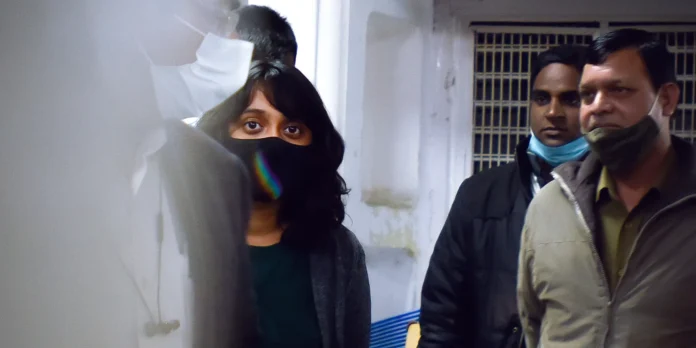Author: Naomi Klein
Affiliation: The Intercept (senior correspondent), Rutgers University (Gloria Steinem endowed chair of media, culture and feminist studies)
Organization/Publisher: The Intercept
Date/Place: February 27, 2021
Type of Literature: Report
Word Count: 4,100
Link: https://theintercept.com/2021/02/27/india-climate-activists-twitter-google-facebook/
Keywords: India, security, tech companies, Google, Facebook, spying, Climate, Activism
Brief:
The author navigates through the increasing cases in the virtual world of India and its rising troll army. The Jammu and Kashmir Coalition of Civil society, a collection of human rights groups based in Indian-occupied Kashmir, has coined the term “digital apartheid” in its reporting of rights violations by Modi’s Hindutva regime. The UN-recognized disputed territory has witnessed the longest siege of its internet and communications access, after India illegally annexed the region on August 05, 2019. More recently, as farmer protests against the crony capitalist laws were gaining momentum, the Hindu nationalist government cut off internet in New Delhi and charged sympathizers and farmer supporters with sedition. One case which caught global attention was “Toolkit case” – when environmental activist Greta Thunberg posted support for farmers who were protesting, and posted a toolkit of resources to take action. India claims such a post is part of a larger international conspiracy against India. India’s digital army has also taken notice and spoken out against music star Rihanna and “supposed plots against yoga and chai.” The author details the complicity of the big tech companies including Facebook, Twitter and Google in cooperating with the Hindu nationalist government to shut down criticism, dissent and farmer protests. Having in mind the billions-of-dollars potential of India’s consumer market, these companies have towed the line of the current regime in India. Activists have raised questions and called out the hypocrisy and violation of private freedoms of individuals implicated in India in such cases. While these companies boast of freedom of expression in Western capitals, they are ever ready to share user data with the Indian government and shutting those accounts critical of India’s facade of democracy. It also touches on the new digital media policy brought by the Bharatiya Janata Party government which requires companies to share the source of content put on social media, including that on WhatsApp, within 72 hours. “The latest proposed regulations requiring social media companies to assist Indian law enforcement is yet another outrageous and undemocratic attempt by the fascist Hindutva Modi government to suppress dissent, solidify the surveillance state, and escalate state violence,” notes Canada-based Harsha Walia, executive director of the British Columbia Civil Liberties Association.
By: Riyaz ul Khaliq, CIGA Non-Resident Research Associate




